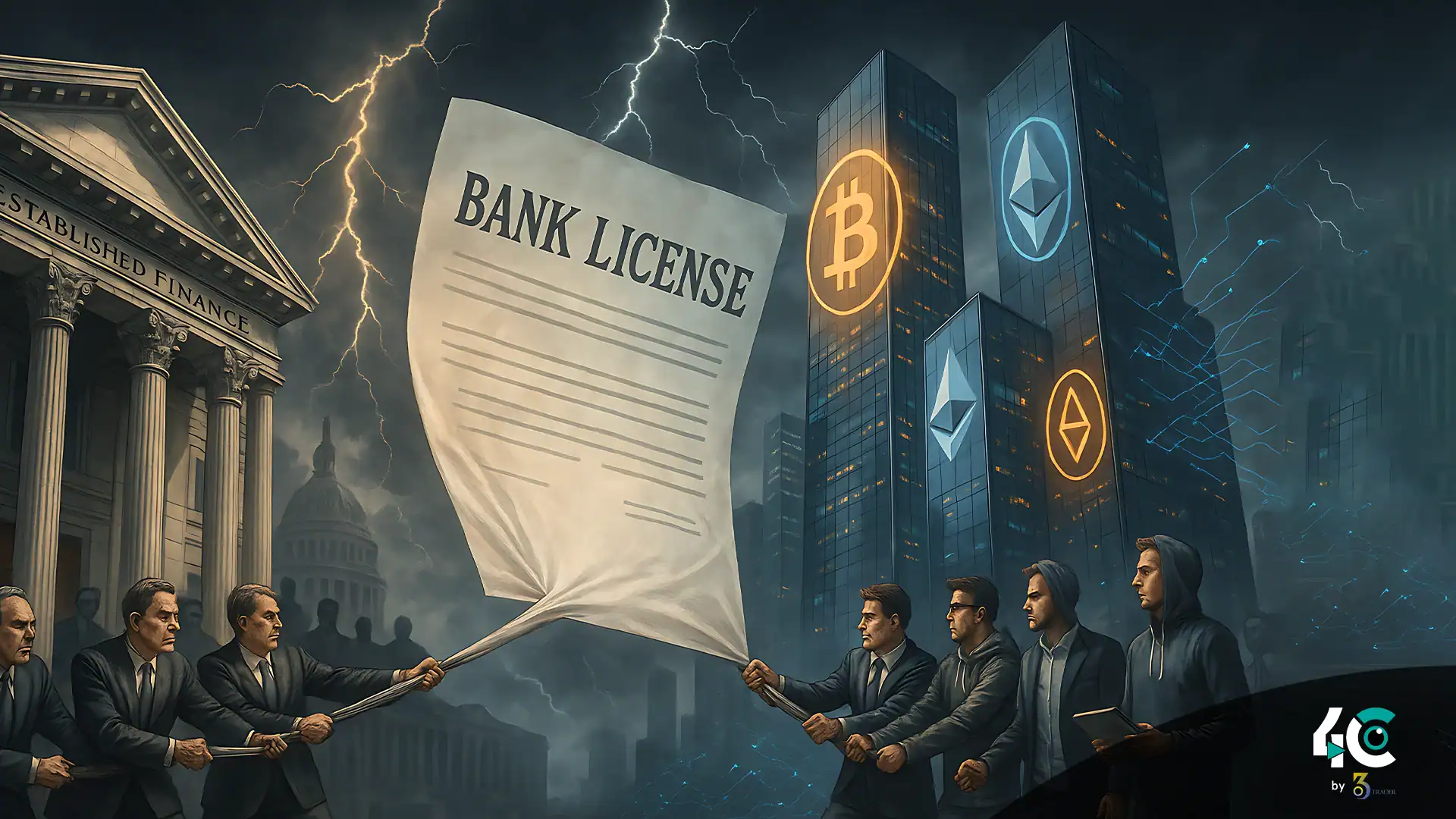Traditional Banks Oppose Crypto Charter Applications
Traditional financial institutions are strongly opposing the surge of crypto firms’ applications for federal bank charters.
Many banks, including the American Bankers Association, want the regulator to start turning down applications for national bank licenses from digital asset firms such as Circle, Ripple, and Fidelity Digital Assets. In a formal letter to the Office of the Comptroller of the Currency (OCC), these groups claimed that giving charters to crypto firms would be a “fundamental departure” from existing banking policy and monitoring practices.
Concerns Over Lighter Regulation and Loopholes
The main concern is whether these crypto firms would have a lighter rule book if they secured national trust bank charters. Traditional banks say that these charters are being used to get around the full regulations that banks face—especially the capital and fiduciary standards sharp banks face.
The banking groups said that public documentation by crypto applicants lacks sufficient details for useful public examination. According to them, the business model proposed will not carry out traditional trust banks’ fiduciary activities. Providing custodial services of digital assets is not a fiduciary. Approval of all the applications at one go without any proper discussion would amount to a huge policy change.
The GENIUS Act and Stablecoin Regulation
These businesses have actual motivations to seek national charters through the view of crypto legal. Under the new GENIUS Act, stablecoin issuers will face limits if they operate under the new federal stablecoin license, which restricts them to the issue of a token only. Because so many of these companies offer broader financial services, a national trust bank charter is the more flexible route because it allows them to operate in any US state without getting multiple money transmission licenses.
Regulatory Loopholes and Industry Concerns
Custodia Bank CEO Caitlin Long observed that it creates a potential two-tier standard problem. She warned that if trust charters let the crypto firms operate like banks with significantly less scrutiny, traditional banks would do the same, thus reducing regulatory protections further. She stated, “Banks could turn into trust companies themselves if what they fear happens.”
Non-Crypto Giants Join the Race
Even non-crypto firms are getting in on the action. General Motors, Stellantis, and Nissan have applied for charters of an industrial loan company (ILC), which give them banking capabilities free from Federal Reserve oversight. Recently, revisions have been made by the FDIC to its ILC approval processes, even withdrawing proposals that would have imposed more stringent restrictions.
Historical Parallels with Walmart and Home Depot
This isn’t the first time banks and nonbanks have clashed. Walmart and Home Depot faced fierce opposition in the early 2000s when they sought similar charters to enter the financial sector. History appears like it is repeating itself now with crypto being the center of it all.
Conclusion
The fight over who gets to be a bank is heating up. As crypto firms and other nontraditional financial players aim for easier access to national bank charters, established financial institutions grow agitated, questioning everything from fairness to oversight and systemic risk. Whoever loses this battle for regulation may alter the entire way of banking or how banking may take place in the future.



























